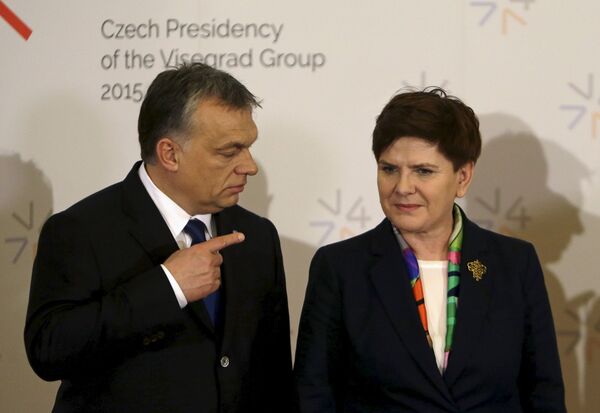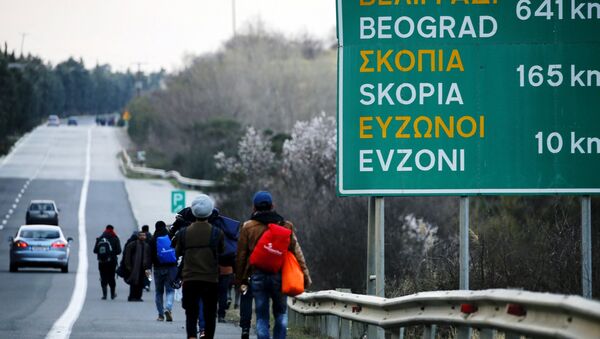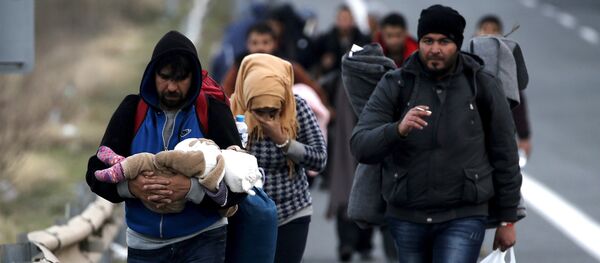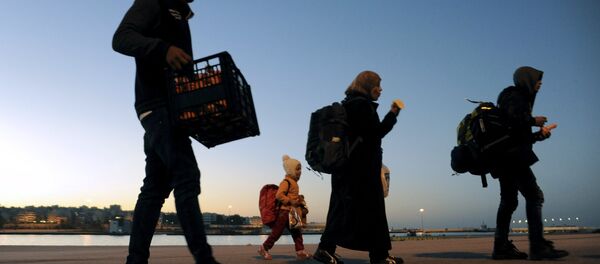The developments were triggered by similar actions implemented by Austria and other Balkan states, with many fearing that Greece could effectively become a "a parking lot" for people looking to travel towards central and western Europe.
With more than 22,000 people already in limbo in the country, Greek migration minister Yiannis Mouzalas said the number could dramatically increase if countries did not open their borders and allow refugees and migrants to continue their travel along the so-called Balkan route.
"In the next month between 50,000-70,000 will come and then I believe [the flows] will stop there," he said.
In a sign of the desperation of the situation, Mouzalas said it was likely the Greek armed forces would be deployed to help alleviate the crisis.
"Wherever the army is needed it will play a role, just as it does in all western democracies.
"Now we use it to build [camps and centers] and to distribute nutrition; tomorrow we don't know, we may deploy trucks and use it in several other services."
Western Balkans situation is critical: possibility of humanitarian crisis is very real& near. Working on contingency #RefugeeCrisis #JHA
— DimitrisAvramopoulos (@Avramopoulos) February 25, 2016
With Greece still in the midst severe economic crisis, the government in Athens has requested emergency aid from the EU, asking for tents, blankets, vehicles, ambulances and other supplies to help manage the latest developments.
Splits Widening
The decision by Austria and Balkan states to place restrictions on people passing through their respective countries has led to a public spat within Europe, with Athens and other countries heavily critical of the measures, saying it would isolate Greece from the rest of Europe, and in turn, transform it into a "graveyard of souls."
We all have responsibility to step up efforts to apply agreed European solutions. No time for uncoordinated actions. #RefugeeCrisis #JHA
— DimitrisAvramopoulos (@Avramopoulos) February 25, 2016
Greece was further angered when Austria excluded it from a meeting of Balkan countries convened to come to a common resolution over the migration issue.
However, Greece hasn't attracted sympathy from all member states, with Austria expressing anger over Athens' handling of the crisis.
Many have accused Alexis Tsipras' leftist government of failing to implement proper refugee registrations and screening centers, with Austrian Chancellor Werner Faymann saying Greece was "behaving like a travel agency" for migrants hoping to start a new life in Europe.
The Visegrad countries — Poland, Hungary, Czech republic and Slovakia — have also been hugely critical of Athens, and have called for Greece to be temporarily suspended from the EU's passport-free Schengen travel zone.

'Stop Playing the Blame Game'
The internal bickering has led many to question the commitment to European solidarity among member states, with the bloc's top migration commissioner Dimitris Avramopoulos saying the "unilateral actions" of certain nations had worsened the situation.
Greece should not bear the weight of the #RefugeeCrisis alone — @XVelentza: https://t.co/uMb4vw6DrU pic.twitter.com/cSgblyYipH
— Chatham House (@ChathamHouse) February 29, 2016
He called on member states to agree on a common approach to help manage the crisis.
"There is no point in playing the blame game any more. We simply have to do everything possible to control the situation."
German Chancellor Angela Merkel, who criticized the decision of some countries to impose border controls, backed up this sentiment, saying the EU needed to unite over the issue.
"Do you seriously believe that all the euro states that last year fought all the way to keep Greece in the Eurozone — and we were the strictest — can one year later allow Greece to, in a way, plunge into chaos?" she told public broadcaster ARD.






